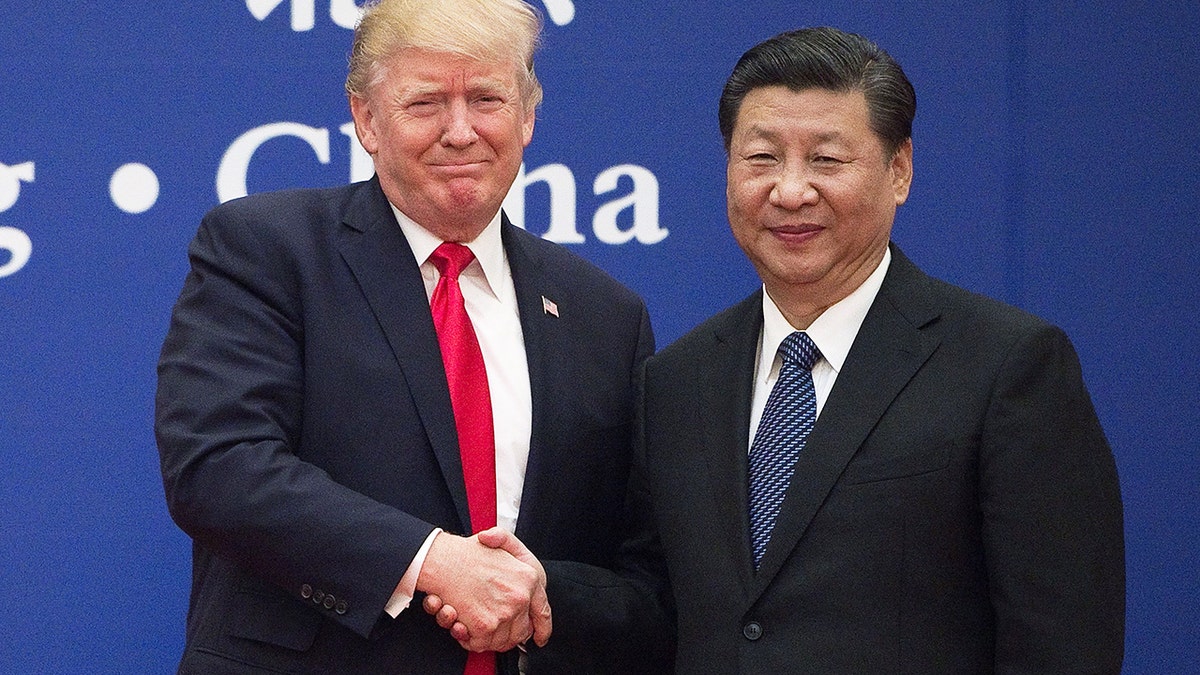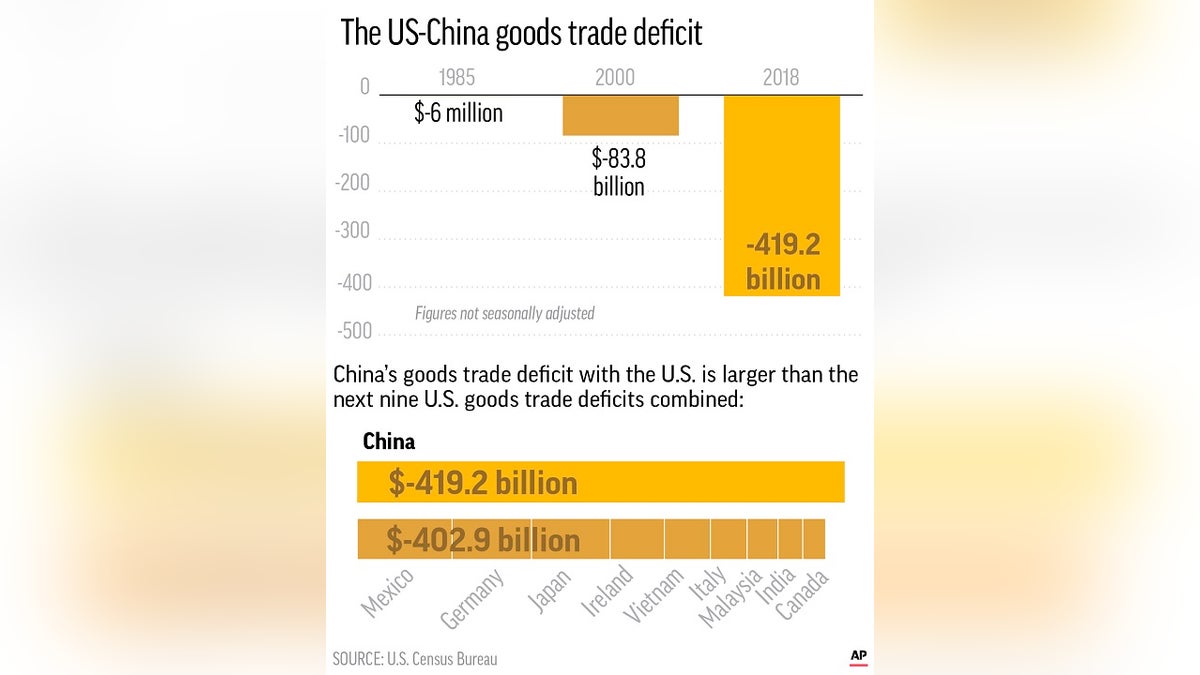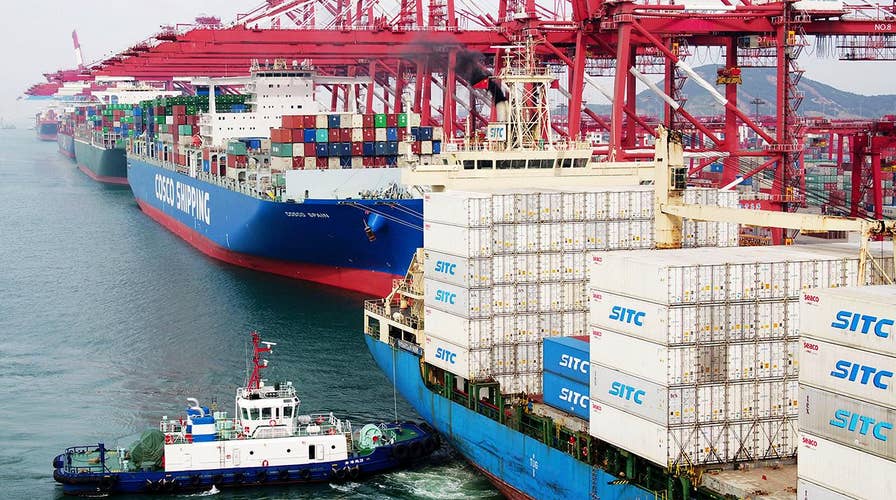US-China set to resume trade talks as Beijing vows to retaliate for tariff hikes
The Trump administration moved ahead with increased tariffs on $200 billion in Chinese goods after trade talks failed to produce an agreement on Thursday; Kevin Corke reports from the White House.
Talks between U.S. and Chinese negotiators ended Friday without a trade pact, prompting the Trump administration to possibly further expand its trade war with Beijing and tax its remaining imports, increasing the widening divide between the world's two largest economies.
In a statement Friday evening, a trade representative for the United States said Trump had “ordered us to begin the process of raising tariffs on essentially all remaining imports from China, which are valued at approximately $300 billion.”
Earlier reports said the Trump administration had set a one-month deadline for China to agree to a trade deal or face the punitive tariffs. The threat of additional tariffs -- at 25 percent -- would be placed on $325 billion in Chinese goods, according to Bloomberg. News of the impasse comes hours after the U.S. imposed a second round of tariffs on $200 billion in Chinese products as retaliation for China walking back on its commitments.
TRUMP SAYS OBAMA LET CHINA GET AWAY WITH 'MURDER,' TOUTS TARIFFS AS TRADE STANDOFF HEATS UP

President Trump and China's President Xi Jinping shake hands in Beijing on No. 9, 2017. After U.S.-China trade talks ended Friday without a deal, Trump said he maintained faith in his "strong" relationship with the Chinese leader. (Getty Images)
"The relationship between President Xi and myself remains a very strong one, and conversations into the future will continue," Trump said after trade talks wrapped up. "In the meantime, the United States has imposed tariffs on China, which may or may not be removed depending on what happens with respect to future negotiations!"
China’s top negotiator, Vice Premier Liu He, said in a Friday interview on China-state television that both sides agreed to keep talking despite what he called “some temporary resistance and distractions."
“For the interest of the people of China, the people of U.S. and the people of the whole world, we will deal with this rationally,” Liu continued. He said negotiations had not broken down but added that China was not willing to make concessions on “principle issues," the New York Times reported.
China has vowed retaliation against the U.S. for the higher tariffs even as talks between the world’s two largest economies continue. No specifics have been released.
Trump justified the tariff hikes in a series of other tweets Friday.
“Talks with China continue in a very congenial manner - there is absolutely no need to rush - as Tariffs are NOW being paid to the United States by China of 25% on 250 Billion Dollars worth of goods & products. These massive payments go directly to the Treasury of the U.S....,” he posted.
In other tweets, he said proposed using income from the tariffs to buy agricultural products from American farmers and that the U.S. sells China only about $100 billion in goods and services, which he called a "very big imbalance," Bloomberg reported.
Friday's trade escalation came as a surprise to many American businesses and consumers who thought a trade deal was within reach.

This graphic shows the increasing US-China trade deficit over time and compares with other top U.S. trade deficits from other counties. (Associated Press )
"Thousands of U.S. companies are affected, and some had millions of dollars on the line," Brian Keare, the field chief information officer at Incorta, who advises companies like Broadcom, Starbucks, and Apple, told Business Insider. "You literally had to make split-second decisions about your logistics and supply chain if you wanted to make sound financial decisions."
CLICK HERE TO GET THE FOX NEWS APP
White House officials have stressed that both sides were eager to reach a deal. Treasury Secretary Steven Mnuchin told FOX Business last week that although they still had “more work to do,” enforcement mechanisms were “close to done.”
“If we get to a completed agreement it will have real enforcement provisions,” he said at the time.





